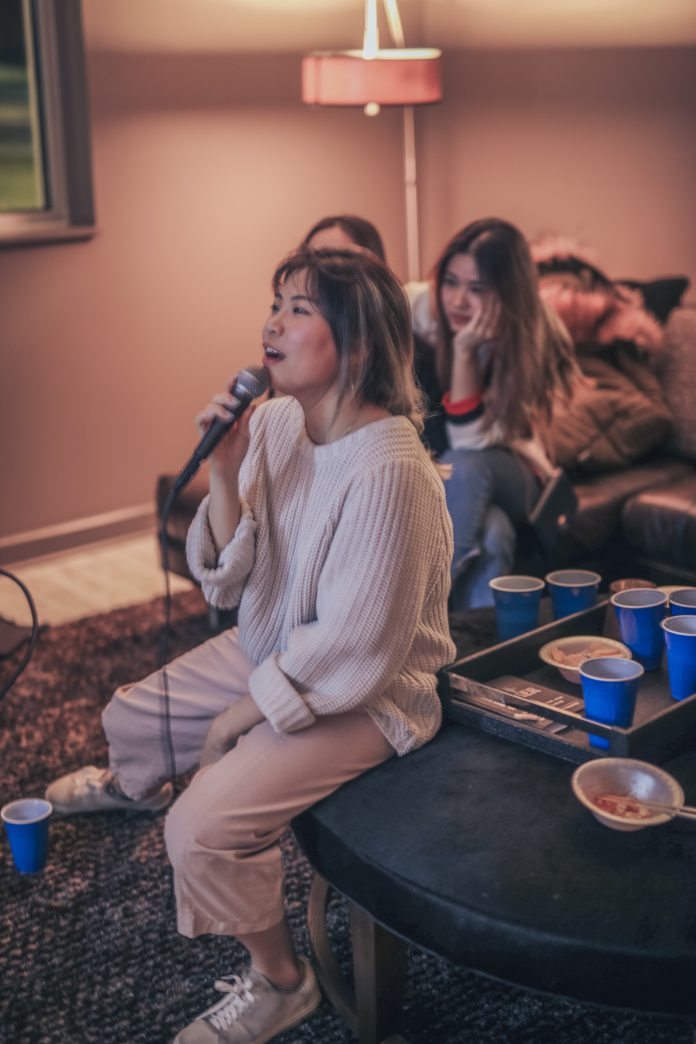
Global cuisine provided another opportunity to connect diverse communities at DePauw University throughout different events that celebrated Lunar New Year’s Day. This year, the day fell on Feb. 16, according to the historical lunisolar calendar.
Lunar New Year, also called “Chūnjié,” “Tết,” “Seollal” and “Tsagaan Sar” is one of the biggest national holidays in China, Vietnam, Korea and Mongolia, among others in East and Southeast Asia.
The main festival on campus was at the Center of Diversity and Inclusion (CDI), Friday evening. It was hosted by DePauw China Connection (DCC) and cosponsored by ASIA Club and International Student Association (ISA). Called the “New Year Celebration,” the event provided various festival attractions such as piles of Chinese boiled dumplings, Jiaozi, Korean fried rice cakes and games like sparklers, Mahjong, karaoke and photo booths.
It was unprecedentedly “diverse” New Year gathering, said the president of DCC and junior Isabel Niu. “Chinese students at DePauw have annually celebrated it for a long time, but this year, we planned the event to have everyone with the Lunar New Year tradition together for the first time,” Niu said, who called for sponsorship from other multicultural student organizations.
Sophomore Diane Um was busy in the kitchen making Tteokbokki, or spicy fried rice cakes. Um, as a student from Korea and vice president of ISA, took the role after a request from the organizer. “DCC worked so hard for everyone to feel inclusive,” Um said. “I am glad to have this opportunity to cook one of my favorite Korean foods here.”
On Thursday and Friday, Bon Appétit Management Company at DePauw served Korean, Chinese, Mongolian and Vietnamese cuisine at Hoover Hall.
The Catering Director Megan Inman and Executive Sous Chef Laura Fornari said that Bon Appétit catering company as a whole was encouraged to celebrate the Lunar New Year. At DePauw, the company consulted the International Student Services office (ISS) to gain information from international students. “Because their population is so large here,” Fornari said, “we thought we could do something special.”
With the mediation of ISS, Bon Appétit had two meetings with students from China, Vietnam, Korea and Mongolia to exchange ideas. Some students brought recipes for the holiday, and the company’s supply chain gave chefs access to authentic ingredients. While not all suggested dishes were able to be served for the occasion, Bon Appétit is now eager to upgrade the cuisine at DePauw, considering positive feedback from students.
Isabel Niu, the organizer of the celebration event, said, “we didn’t have to order delivery from local Chinese restaurants this year.”
“It’s an ongoing initiative,” Inman and Fornari stated, “so feedbacks are always welcome.”
In Hoover Hall, ISS also provided educational materials about the Lunar New Year, such as the Chinese symbols of upside-down Fú (fortune) at the entrance.
Aliza Frame, director of ISS, emphasized the multicultural conversation through meals. Anticipating a lasting change beyond the New Year, Aliza said, “it’s a great opportunity for the majority of students to learn about different cultural communities.” Jenny Xue, a Bon Appétit staff member, involved in cooking the special menu, hoped not only for international students to feel at home but also for domestic students to learn about different cultures. “I hope everyone can eat well, live well and study well at DePauw,” Xue said.
Apart from feasts, the New Year is also an important religious holiday across East and Southeast Asian cultures, including the Buddhist community on campus gathered on Saturday. “As a senior and a Buddhist student,” Yolanda Maung, Interfaith Council Leader for Hartman House said, “I do not think that the religious perspective of the Lunar New Year is portrayed here at DePauw.”
Recognizing the invisibility of spiritual aspects in cross-cultural communication, Maung and the Interfaith Council are planning to hold the first gathering for Buddhist students on Mar. 1 to talk about various Buddhist holiday traditions in Asia.






